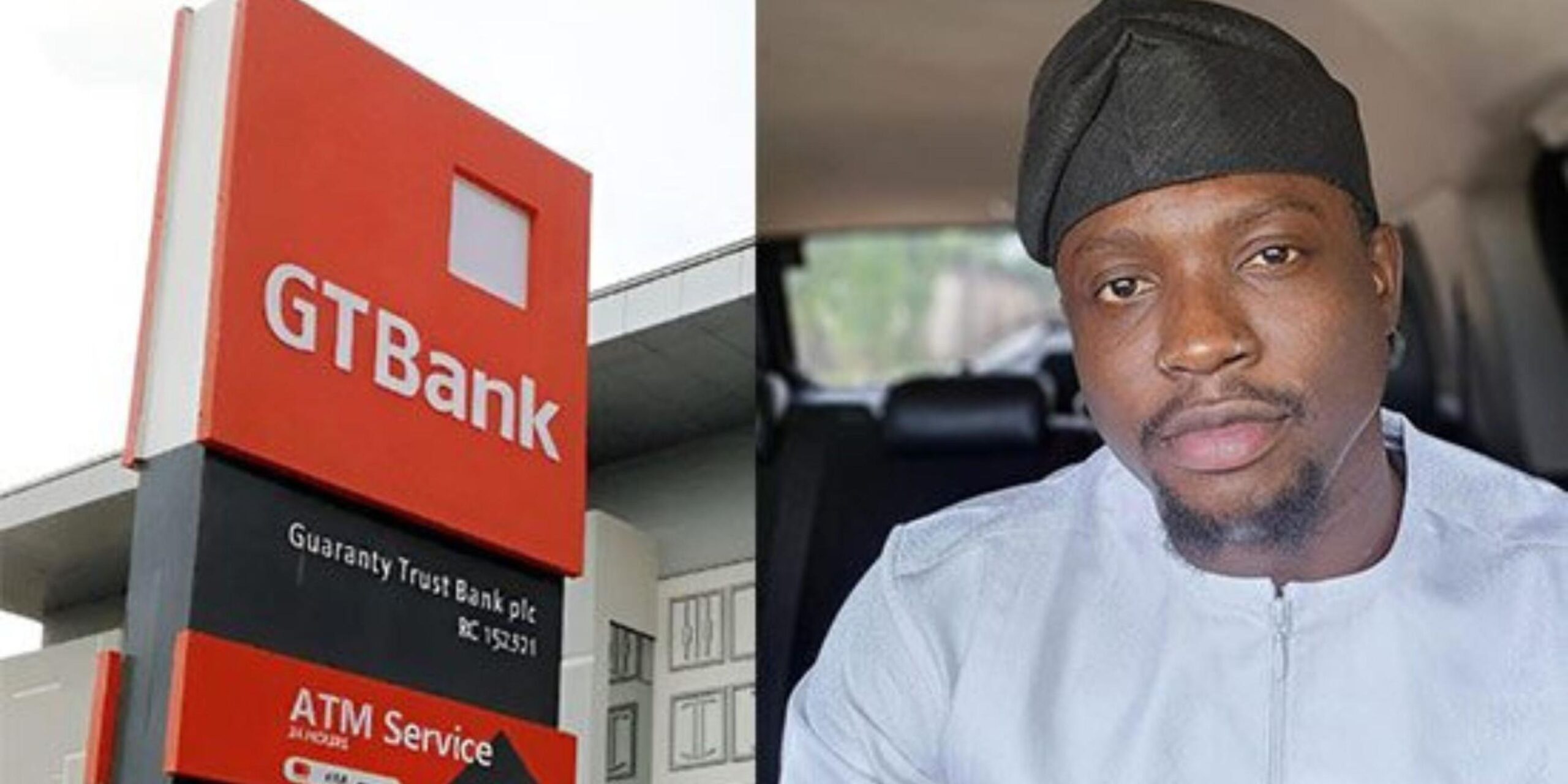On May 2, 2025, the Nigerian social media space erupted following the arrest of prominent activist and content creator, Martins Vincent Otse, popularly known as VeryDarkMan (VDM).
He was apprehended in Abuja by operatives of the Economic and Financial Crimes Commission (EFCC) shortly after visiting a branch of Guaranty Trust Bank (GTBank) in Area 3, Garki, Abuja, to address issues related to unauthorised deductions from his mother’s account.
The incident, caught on CCTV and widely circulated online, triggered a wave of public outrage. Footage showed VDM being seemingly trapped in the bank’s exit door before being detained by EFCC officials, fueling allegations of a targeted and orchestrated operation to silence the outspoken critic of government and institutional misconduct. The silence from both the EFCC and GTBank in the immediate aftermath only deepened suspicions and raised further questions about the collaboration between law enforcement agencies and corporate entities in matters involving private citizens.
Deji Adeyanju, human rights lawyer and legal counsel to VDM, initially stated via his official X (formerly Twitter) handle on May 5 that the EFCC had failed to present any formal petition or valid reason for his client’s arrest. According to him, “EFCC said there is no petition against him after our repeated demand.” This claim casts doubts on the legality and motive behind the arrest.
However, on May 6, the EFCC broke its silence with an official statement posted on Facebook, confirming that VDM was indeed in its custody over multiple petitions relating to “financial malfeasance.” The Commission alleged that VDM had repeatedly ignored its invitations for questioning, prompting the move to detain him. The EFCC maintained that due process was followed and assured the public that VDM would be released upon fulfilling his bail conditions.
Despite this clarification, public perception remained largely sceptical. Many Nigerians questioned the EFCC’s priorities, particularly when high-profile individuals facing serious corruption allegations continue to roam freely. The role of GTBank in the saga also came under intense scrutiny. Social media users asked pointed questions such as: “Why was VDM trapped in the bank’s exit door?” “Why hasn’t GTBank issued an official statement?” “Was the arrest an act of revenge for publicly calling out the bank?” “Is GTBank complicit in the possible abuse of a customer’s rights?”
The arrest quickly evolved into a nationwide debate on institutional overreach, freedom of expression, and corporate accountability. Protests erupted at several GTBank branches, with demonstrators waving the Nigerian flag and holding placards demanding VDM’s release. Calls to boycott the bank grew louder, with many users sharing screenshots of closed accounts as a form of protest.
On digital platforms, hashtags such as #FreeVDM, #GTBankvsVDM, #BoycottGTBank, and #NigerianBanks dominated the conversation. According to social listening data, GTBank mentions on X surged by 320% compared to the previous week, with 72% of the feedback being negative, focusing on customer service failures, lack of transparency, and human rights concerns.
READ ALSO: Experts proffer how brands can stay visible despite budget cuts
Instagram also saw a spike in critical comments under GTBank’s posts, while meme culture and viral videos mocking the brand’s role in the arrest garnered hundreds of thousands of views and shares.
In reaction to the incident, Nigerians have taken to various social media platforms, airing their opinion and giving their thoughts about what could have led to the arrest of the social activist. While some faulted GTBank and accused it of conspiracy, other opinions tell otherwise.
While expressing his thoughts via LinkedIn, Wisdom Etim, a key accountant associate at Fairmoney, opines that the presence of VDM could have been an advantage to the bank if the situation had been handled correctly. “VDM’s presence in the bank could have been a plus for them if they had managed the situation properly. He might have unknowingly become a brand ambassador. But they failed,” he wrote.
He further emphasised that the arrest was a conspiracy, stating that “The EFCC cannot walk into the bank to arrest VDM without the consent or a call from ZH, or BM, or SM (HoP) —even if the order came from above because the bank is an institution governed by laws.” highlighting how this might have affected the bank’s reputation, he said, “they could have asked the EFCC to do their job elsewhere in order to protect their brand image.”
Also, Samson Oni, Head of Sales, Risk Asset and Liquidity, established that the incident of the arrest taking place within the vicinity of the bank can lead to reputational risk, customer trust erosion, as well as operational concerns. “There are potential disadvantages of GTB’s Involvement in his arrest. It could affect the brand,” he said.
Ibrahim Sadan Landan-Banki, in his opinion, tagged GTBank as “the conduit,” relating the incident to Nnamdi Kanu was captured at the airport in Kenya. “This is similar to how Nnamdi Kanu slept in Kenya and woke up at Abuja with Kenya, Commonwealth states as conduits, including the United Kingdom.”
Meanwhile, a chartered accountant, Wasiu Bisiriyu, argued that GTBank was falsely accused of involvement, referring to the CCTV footage made available by the bank, a footage that showed when VDM walked out of the banking hall. “GTBank made available CCTV video showing when VDM left the banking hall and arrested at the gate of GTBank. Why is the man lieing and giving out false information?” he questioned. He further stated that “whether someone arrested or not, there is a reason why he was arrested and anybody can be arrested at anywhere.”
Interestingly, while GTBank battled this reputational crisis, competitors such as Access Bank and Zenith Bank saw an uptick in customer engagement. Access Bank recorded a 15% increase in social interactions, while Zenith Bank saw a 22% rise, largely tied to positive sentiment and customers recommending them as preferable alternatives.
VDM was made to remain in EFCC custody, pending the fulfilment of bail conditions. The episode underscores the rising power of digital advocacy and the weight of public opinion in shaping corporate and institutional accountability in Nigeria. As Nigerians demand clarity and justice, the EFCC and GTBank must confront the growing call for transparency, not just in this case, but in how they engage the public moving forward.







Comment
No comments found.